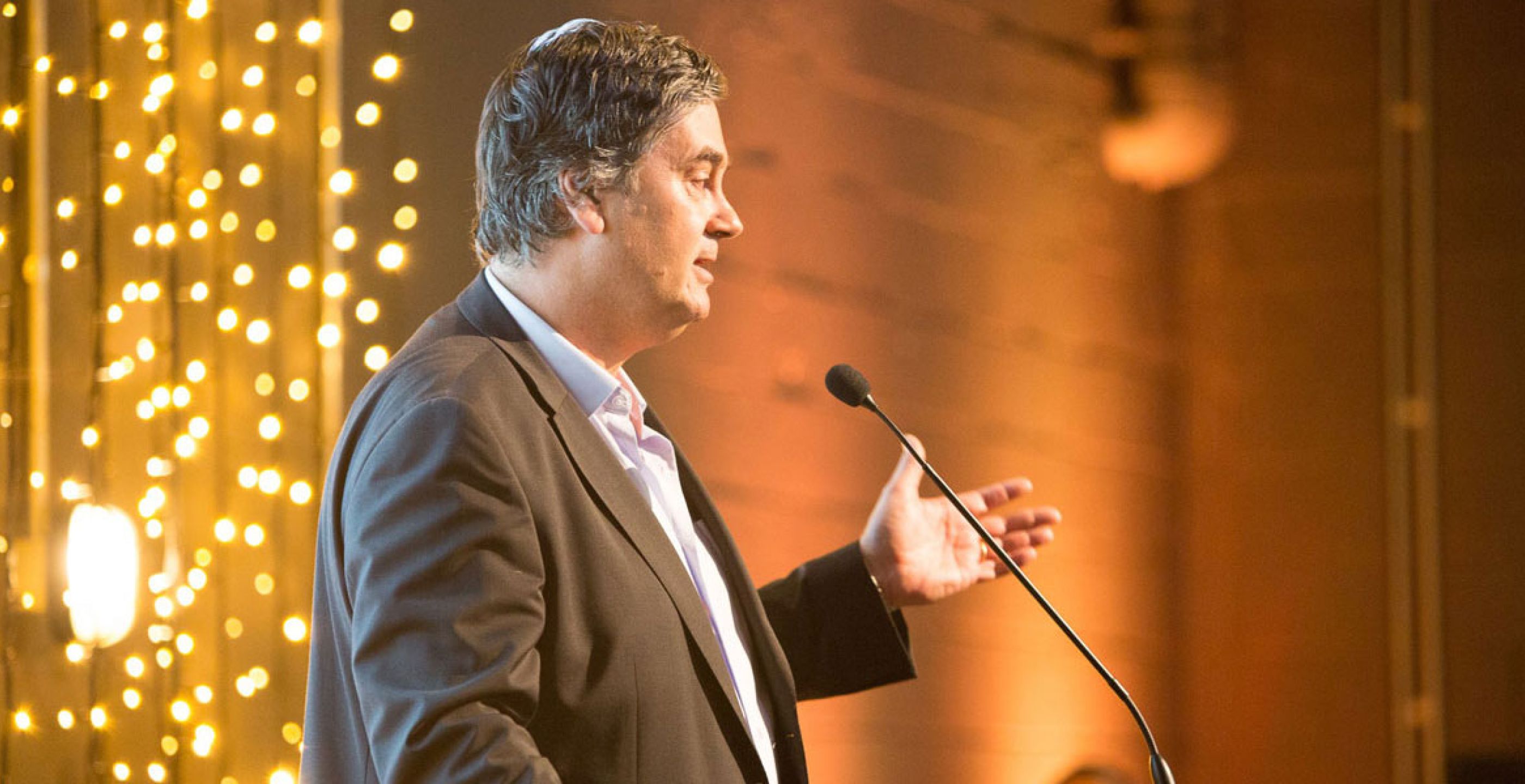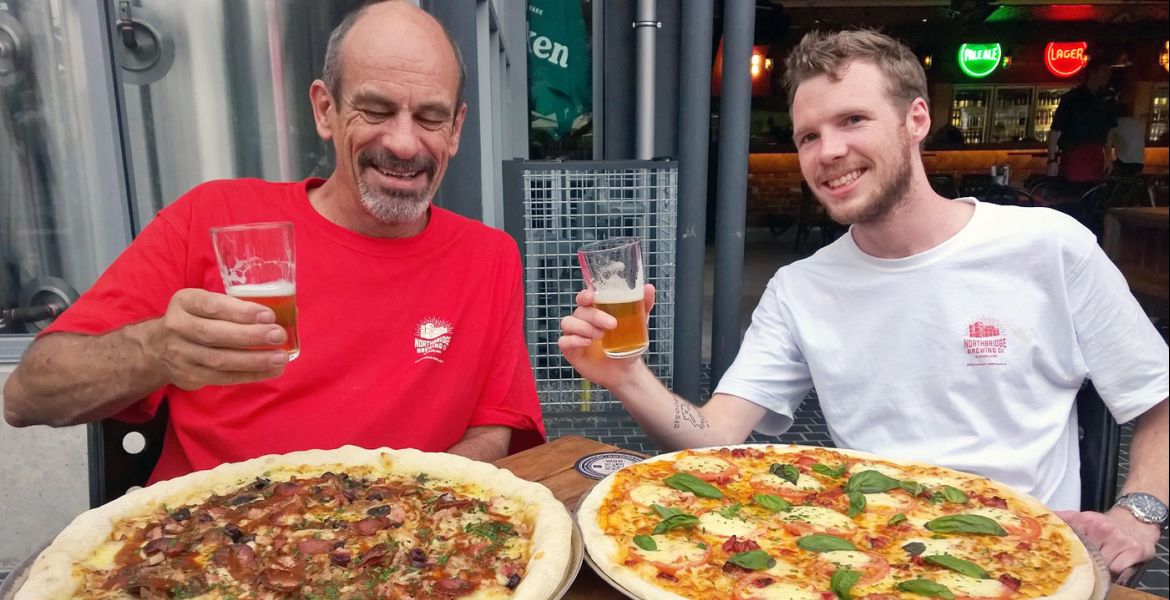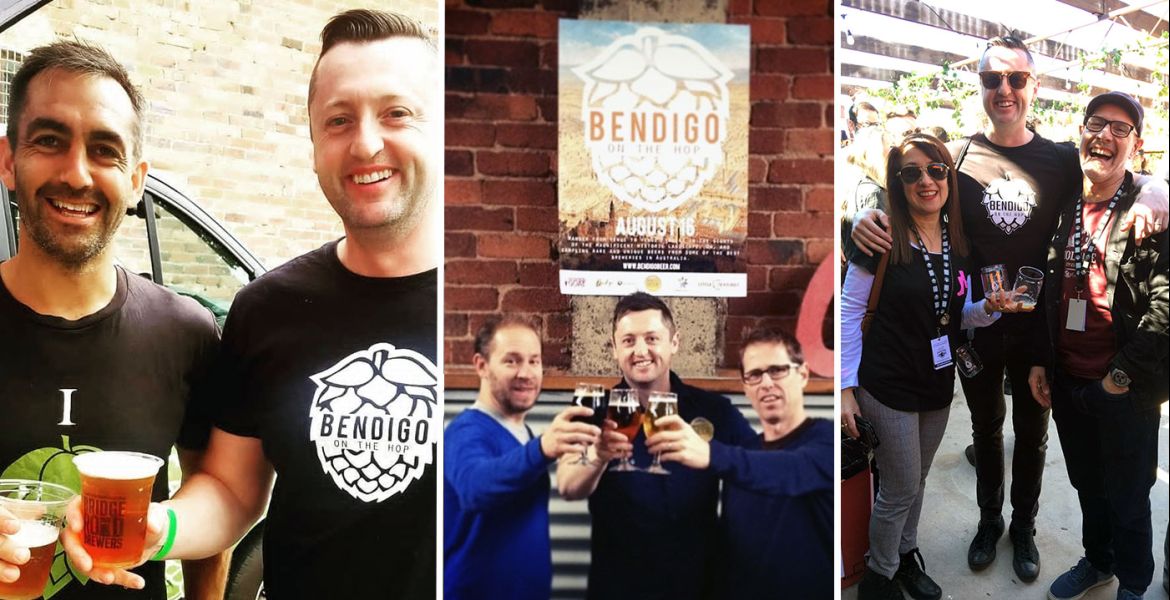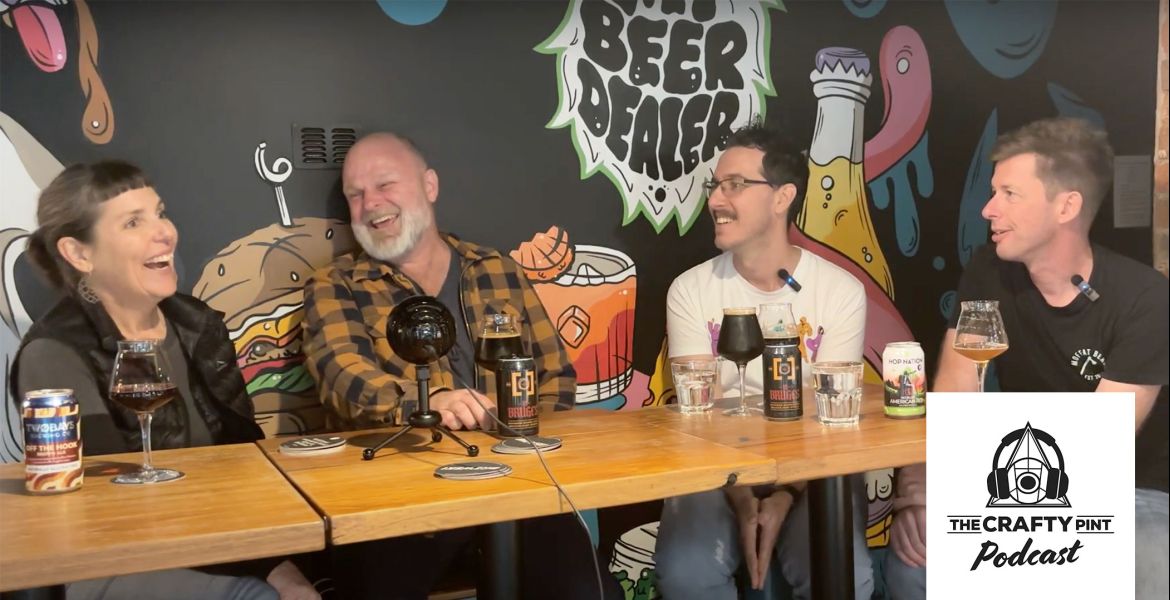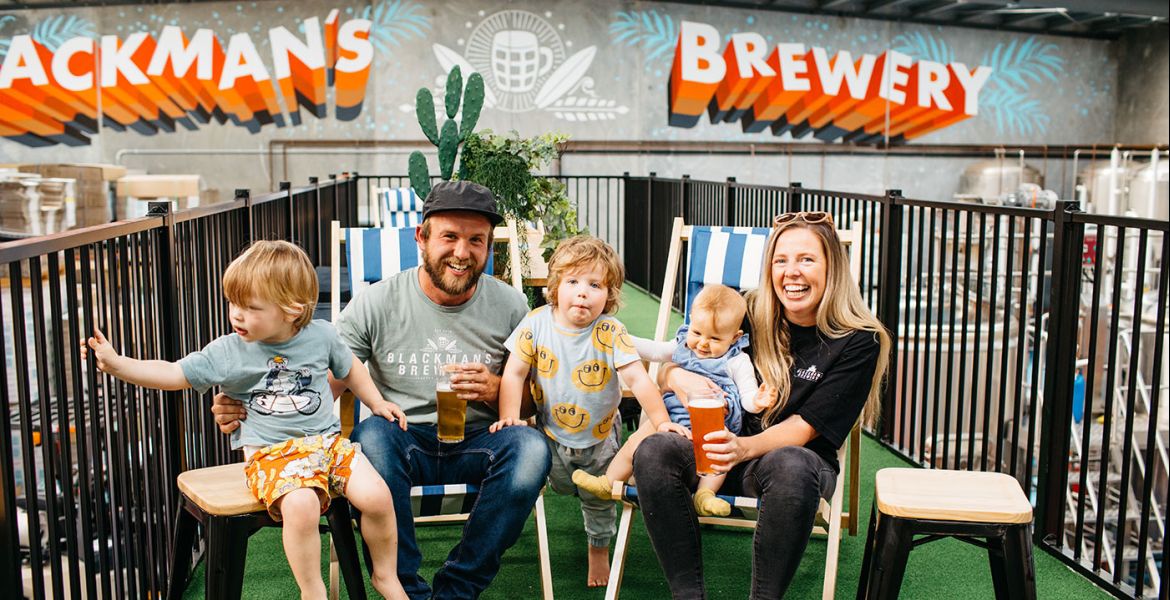On the day I spoke to David Cryer about his imminent retirement after 30 years running the malt business bearing his name, I was at Voyager Craft Malt in the Riverina. I mentioned to co-owner Stu Whytcross that I’d been chatting to David before our meeting.
“Without David, this business wouldn’t exist,” he said, highlighting the impact the Cryer Malt founder has had on the beer industry.
“People might look at us and think we’re competitors, but he has never been anything other than fully supportive of everything we’ve done.”
As David steps down after three decades as one of the Australasian beer and brewing industry’s towering figures – in all senses – you’d struggle to find many people either side of The Ditch who’d feel any differently.
If you boil it down to essentials, David launched and built a successful malt distribution business that gave brewers and distillers in the region more interesting products to play with, before selling to Barrett Burston Malting just under five years ago.
But in reality, the 59-year-old has been one of those key figures who have helped build and shape the local industry in more ways than they’ll probably ever know, who have helped tie things together, laying down the platform upon which the remarkable and diverse beer scene of the 2020s could take shape.
(As an aside, if you were to boil David down to essentials, I’d like to think it would require an extended boil that would lead to a most magnificent and characterful barley wine.)
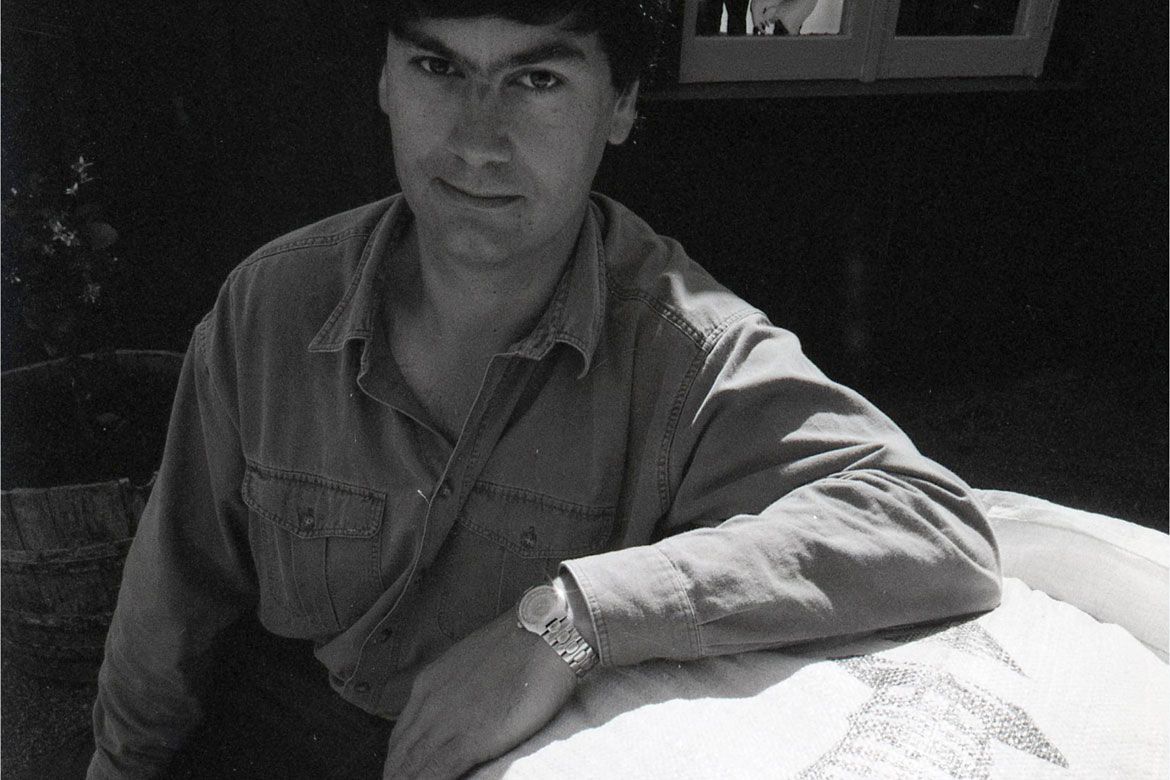
He’s made the announcement pretty much 30 years to the day since he started Cryer Malt, with the intention to spend more time with wife Clare, who’s been a key part of the business, and their three kids. And he leaves a legacy that reaches across the planet – to customers, growers, brewers, suppliers, drinkers and friends he’s made along the way.
“I’ve done a pretty good job of finding new products overseas and making sure that all the breweries in Australia and New Zealand had access to really good ingredients,” is the understated way in which he characterises a career that's seen him bring quality malts from the likes of Weyermann, BESTMALZ and Bairds, plus Yakima Chief Hops and White Labs yeasts, to Australasia.
“I always went to the Craft Brewers Conferences looking for something new. I just wanted to make sure we had good, fresh ingredients – and the rest was up to the brewer. And now we have a whole cohort that can brew a really good product.”
The teenage David had rather different aspirations, however: he’d wanted to be a marine biologist when he started at university, only to realise he preferred liquids on the inside more than the outside, and quitting two years into his course. Instead, he to Massey University in Palmerston North and gained a diploma in wool technology, before landing a job with a wool exporter, where the logistics side of the business proved to be a “great training ground for what I would get into with malt.
“There was quite a lot of eccentric people in the industry,” he says, “50- and 60-year-old grown men barking and squeaking and chirping and yelling to get the attention of the auctioneer.”
He started working for his father’s wool exporting business, James Guthrey Limited, in a role that saw him spend time travelling through South East Asia and Europe, before the business ran into trouble during the GFC in 1991. Initially, he took on the business himself – renaming it David Cryer Wools Limited – but within a couple of years his calling came calling.
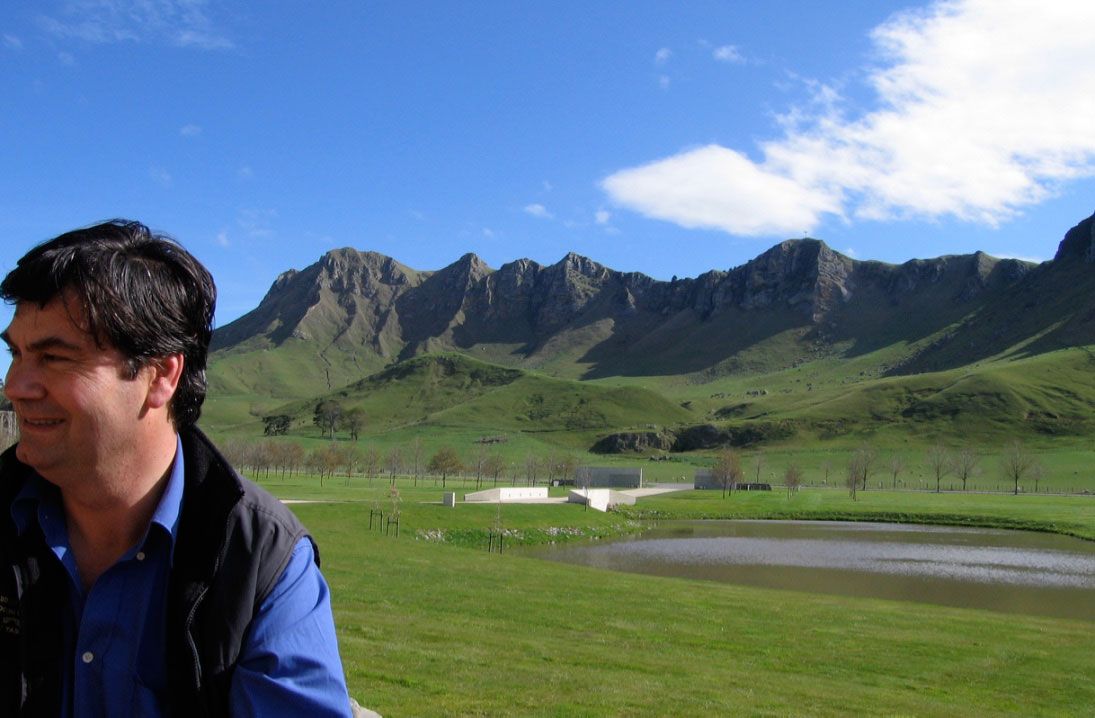
One of his cousins, Fiona, had married the “always flamboyant” Peter Ellis, who ran Moray Firth Maltings in the UK, now Bairds Malt.
“He came [to New Zealand] on a trip and saw I homebrewed and that I loved beer. He saw what was happening in the US, so gave me an opportunity to get in on the ground floor,” he says, adding, in what appears to have been something of a theme in these formative years: “I discovered a whole world of highly eccentric, highly creative people. It was the place I wanted to be.”
David Cryer Wools morphed into Cryer Malt, initially focused solely on New Zealand. At the time, there was a feeling in Australia that the country had already experienced its craft beer boom – one that had fallen flat – and in his home country there were around a dozen craft brewers in operation, with Richard Emerson’s early releases out of Dunedin already a standout.
“I was just targeting the little guys,” David says. “They were being supplied by the Canterbury Malting Company, owned by Lion and DB, who kept their prices high. The range of malts was very narrow and not what they needed.”
He recalls the first time he walked into to show Richard Emerson some Maris Otter malt from the UK: “His eyes lit up!”
Encouraged by Peter – one of many key mentors who aided him in the early years – to invite someone from the NZ industry to join them on a tour of the UK, he selected Paul Cooper, one of the most influential figures in the country’s fledgling craft beer industry. They made stops at sites such as The Beeston Maltings in Nottingham – still floor malting at the time – enjoying a “fabulous time” during which David estimates he put on about two stone in two weeks, before returning home.
With a potent advocate for the malts he was importing now on board, the business and its reputation grew to the point enquiries began coming in from Australia. So, with assistance from Wes Smith from Maltcraft, he established Cryer Malt in Australia in the late 90s.
It was a crucial time for what was then more commonly referred to as the microbrewing scene in Australia: Mountain Goat had launched in 1997; Paul Holgate released his first beers two years later; John Stallwood was working on plans for Nail Ale; Little Creatures was about to launch; the Australian International Beer Awards were in their formative years.
“The key guy who really helped me was [Stone & Wood co-founder] Brad Rogers,” David says. “He was working at CUB at the time and was so passionate about beer in general. If anyone opened up, Brad would know and would tell me; we had just a great time going around meeting everyone.”
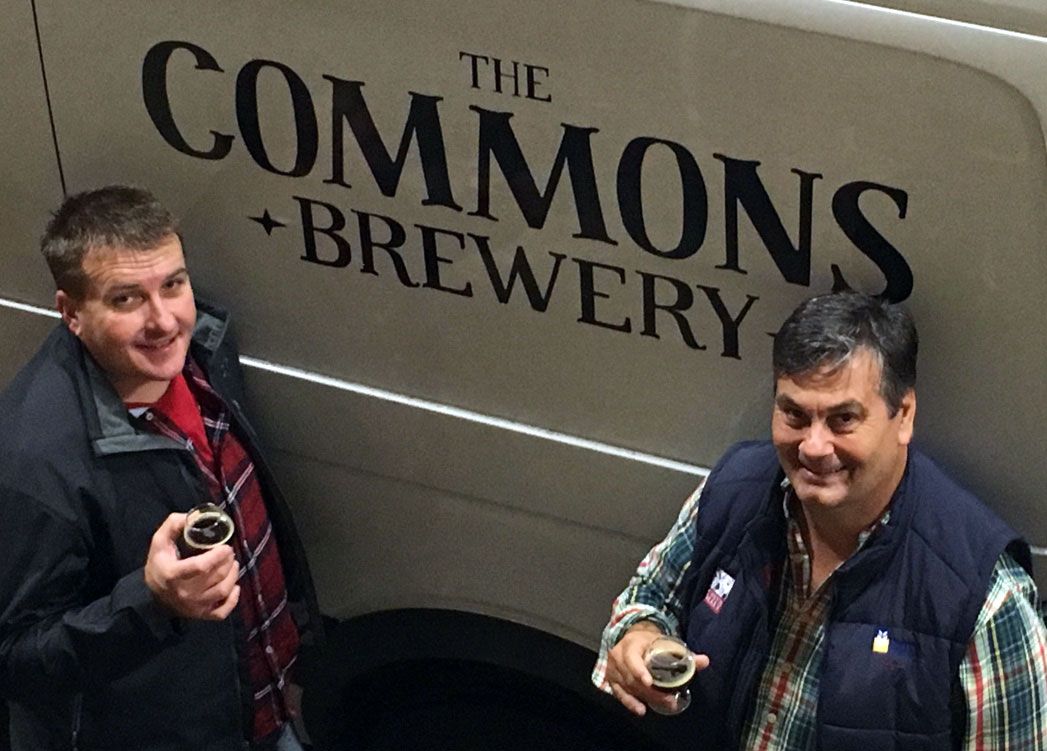
Brad, who was brewing Masthead beers in Sanctuary Cove at the time, said they knew of each other before meeting, and instantly hit it off when they did meet. It started a lifelong friendship – they attended each other's 50ths and Brad says he's looking forward to celebrating David's 60th, 70th and 80th – through which they worked and hit the road together often.
"Both of us were, 'OK, let's get out and have some fun.'," Brad recalls of those early days, which led to adventures both in their home countries but also the States and Europe. "He had relationships with people all over the world as he was selling so much malt; being able to tour with him, and the people we'd meet, we had so many good times."
Following an incident with a rather smaller guy at a bar in Queenstown, they became known as the Twin Towers – both stand six foot five – and you'd have to be careful not to get caught between them at post-awards parties if you wanted to start the next day in decent condition.
"We just had a huge amount of fun together," Brad says. "We would bunk together, hire cars together, put cars on large rocks together... We've drunk a lot of beer and wine, and eaten a lot of food together. And now we can look forward to getting back on tour again."
After launching Cryer Malt into Australia, there followed nine years of “travelling around and having a good time”, in which the business grew, but not dramatically, before wife Clare entered the fray, bringing with her a mantra: “What are you sales guys doing in the office? Get out! Get selling!” And, says David, it worked.
Over the past three decades, he estimates Cryer Malt has supplied 300,000 metric tonnes of malt to the craft beer industry. By the time of the sale in 2017, there was a staff of 25 too, but the start was rather humbler.
Cryer’s first employee was Tom “Malt Man” Madams – Robin to David’s Batman (a reference that will make more sense later, I promise) – who joined when the business was still being run from David’s garage, a space dedicated mostly to his vast collection of comic books and other collectibles.
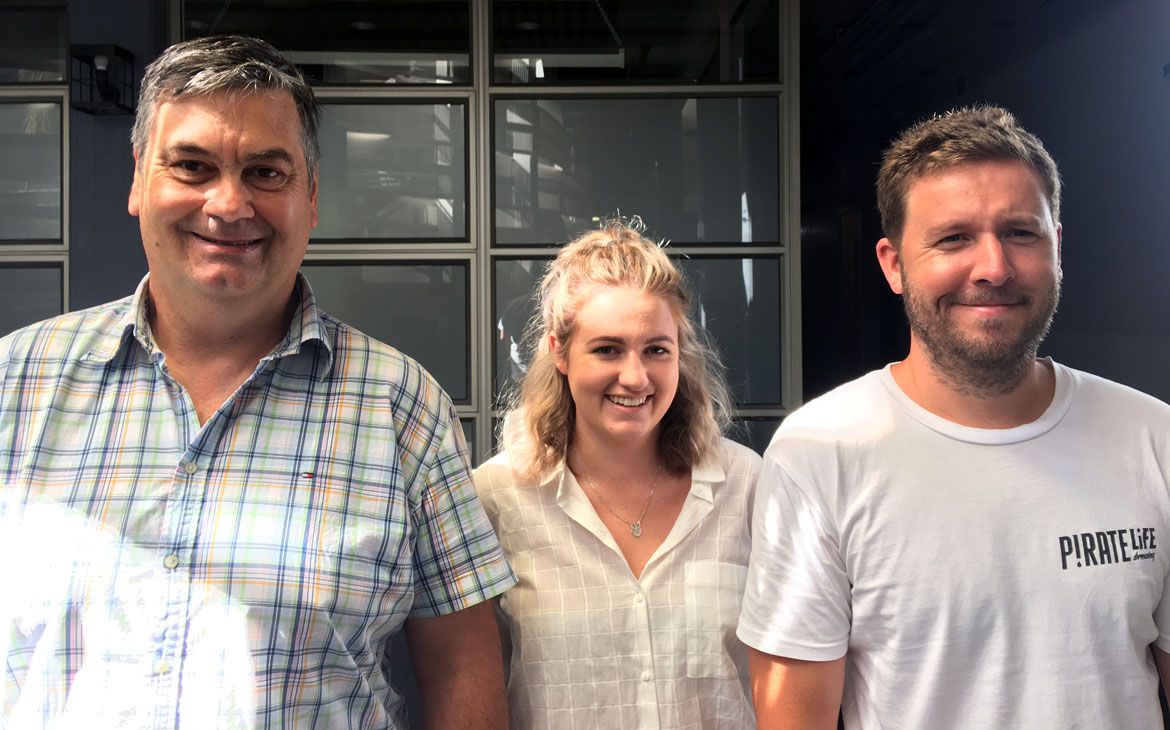
“We put an ad in the paper and the phone rang,” David recalls. “Tom was at a pub in central Auckland, at a backpacker place. He had just got off the boat or plane, and I thought he sounded really good.
“I gave him the address and he came to our house in Mount Eden. Our twins would have been about two, walking around the backyard. Tom did the interview and I hired him straight away. Nothing phased him, and it was so important to have someone that thought like me.”
More recently, especially for those of us in the industry based in Australia, marketing and sales manager Steph Howard has been as much the face of Cryer as its founder, particularly with the pandemic’s impact on international travel.
“David is the reason I am where I am today,” she told The Crafty Pint, “and I have nothing but thanks for all he has done for myself and the industry.
“He made me fall in love with this industry, and just seeing the passion he has and everything he has done over the last eight years, it’s been a honour to stand beside him. I hope I can make him proud and continue to support the industry in every way he taught me.”
Support is another common thread through David’s time in the industry. Early on, he and Clare decided to dedicate five percent of turnover to marketing and sponsorship. Inspired by Dogfish Head founder Sam Calagione’s line about a rising tide lifting all boats, they aimed to help businesses and ventures they thought could in turn help the industry grow.
In New Zealand, this included sponsoring the Brewers Guild and buying Beervana, which was moved to the country’s capital and elevated to new and highly innovative heights. The time the festival made the front page of the business section “at a time when newspapers were far more influential” was a key moment in his career.
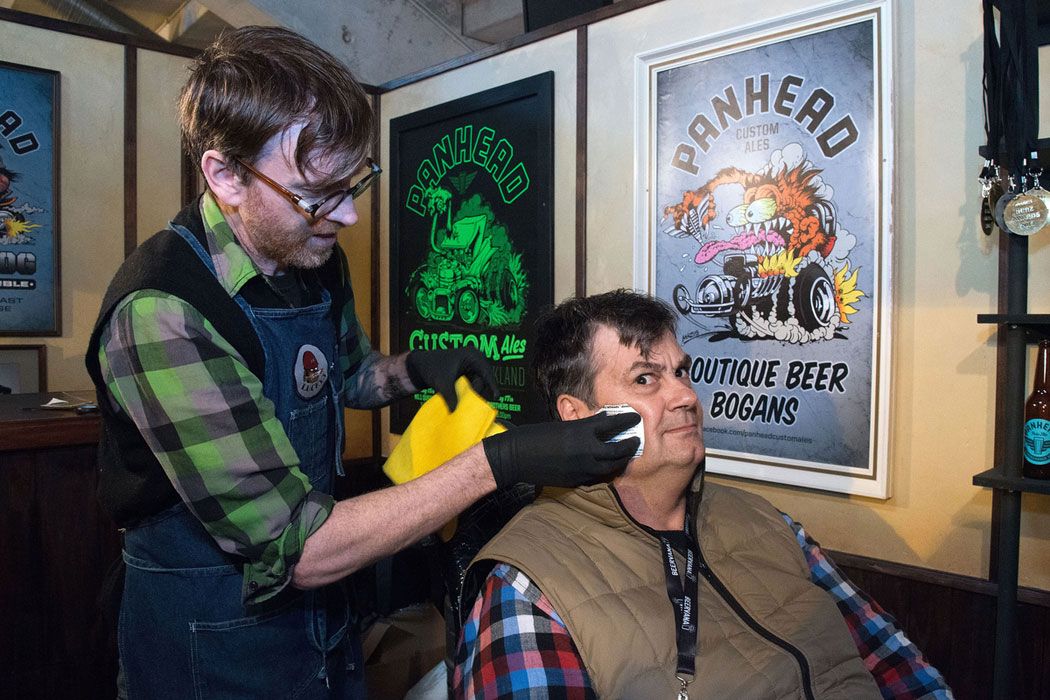
“We picked Wellington [for Beervana] as it was the capital and we wanted to influence the government and the police,” he says. “We wanted to convince people that you could do a festival without people misbehaving.
“It got to a lot of people too. You go to Beervana now and the amount of people that have travelled down there, or talk around the community and see the number of people that have been.
“Before we put it on, we saw festivals taking advantage of breweries, pouring a vast amount of beer and creating drunks. Some of the ideas we had at Beervana, like limiting the pour sizes, we made a difference for the better.”
When it comes to Cryer’s support of the Australian beer community, you only need to glance at the country’s awards competitions, industry conferences, or major events like Good Beer Week to be aware of just how far this support has spread: Cryer is one of those names, like peers such as Bintani, Konvoy and Kegstar, that crops up again and again on lists of key sponsors.
“We needed to be at the heart of the industry,” David says. “We knew what was going on, and it felt right to help the brewers. It was great for the brand, even though we didn’t think of that at the time.
“I’m a strong believer that to help people in business or life you've got to be strong. You need a healthy P&L to be able to help people. I enjoyed being in the Brewers Guild, and being at the first meeting of the CBIA (now the IBA) with a few insights, and to be able to sponsor early awards when it was tough to get them going.”
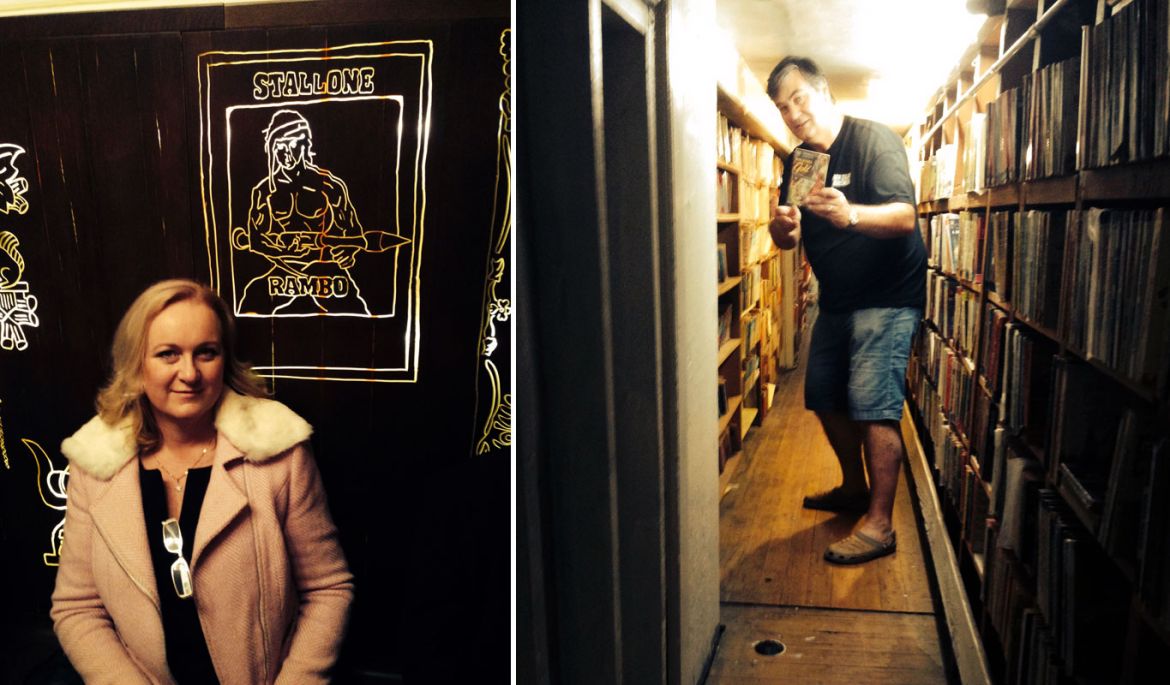
It was almost two decades after switching from wool to malt that things went into overdrive when the craft beer industry exploded from 2011/12.
“It was like four years on a bucking bronco,” he recalls. “So, so many good friends grew exponentially.
“I used to go to the children’s football on the weekend and I would be talking to everyone about craft beer. Then, by 2015, everyone was telling me, 'You’re really lucky to be in the industry.’ Suddenly, I didn’t have to say anything anymore as everyone wanted to talk to me about beer. It was a relief.”
There were other changes too.
“Going forward a few years and suddenly I didn’t know everyone in the room, which took a bit of getting used to. I wanted to get to know everyone there, but it got to the point where the industry had grown too big.”
While David’s business was born to help the smaller end of the beer industry, he’s a firm believer that everyone in beer – big and small – should work together.
”There was alway this feeling that I thought was quite wrong that big brewers are big brewers and small brewers are small brewers,” he says while discussing the times when both CUB and Lion laid off significant numbers of staff, which led many to take roles at smaller operations.
“The opportunity to go from the larger, highly technical breweries to a smaller brewery – some people absolutely loved it. It just helps with the quality.”
He adds: “I would love to see the industry come back together a bit more. We all love beer. There’s such a rich history to beer, so many varieties, you never get sick of learning about it. It’s the ultimate social drink.
“Get people together in a room and have a beer and differences disappear pretty quickly. I love to see the big and small guys together as the biggest threat to beer is other [drinks] industries.”
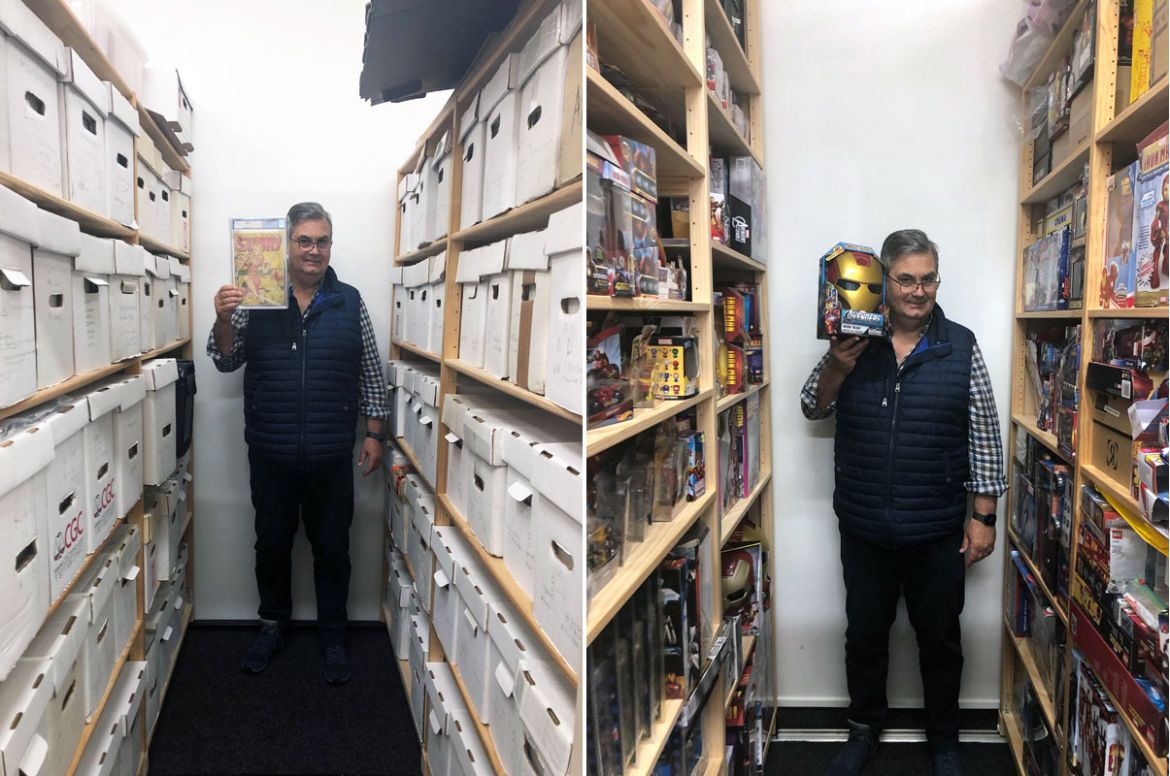
It’s not the only industry in which he’s heavily involved either, even if one is more of a hobby – or, perhaps, obsession. If you know one thing about David outside malt, it’s most likely to be his passion for comic books: when he received his Lifetime Achievement award at the 2021 Indies, he was interviewed by the MCs in front of the vault where around 50,000 comics and various toys and collectibles are kept.
It all started with the purchase of an Iron Man comic.
“There was this dude, Tony Stark, who was really good-looking with a drinking problem,” he recalls. “I kept collecting from there.
"I discovered later that Iron Man started in February 1963 – I was born in February 1963. Now I’ve got every Iron Man comic that’s ever been printed plus all the toys you’ve seen, Wonder Woman number one, sci-fi comics, Buffy The Vampire Slayer, a lot of romantic comics, and some that are slightly unusual…
“There’s one called Reform School Girl that came out in the 50s. It’s got a girl smoking a cigarette and wearing slightly unusual clothes – slightly sleazy. When the girl’s parents found out that she had this photo taken they tried to get it banned.”
Add in Detective Comics #38 – the first appearance of Robin (told you the above reference would make sense eventually) – and putting his kids through the entire three DVD box set of Wonder Woman when they were young – “I was a massive Linda Carter fan,” he admits – and it’s little wonder he refers to the competitive and OCD nature of collectors, or hoarders as Clare prefers.
“I’ve met some really entertaining characters,” he says, before reeling off some of the major events he might now have time to attend: the San Diego Comic-Con International, New York Comic Con, the Angoulême International Comics Festival in France.
“I’ll have a good period of time to catalogue it properly. I’m a repressed librarian,” he says of another retirement goal. “When I go to a bookshop and see they’ve got two of the same book, I can’t help myself putting them together.
“It helped me with the craft beer industry because I was fastidious about logistics and movements.”
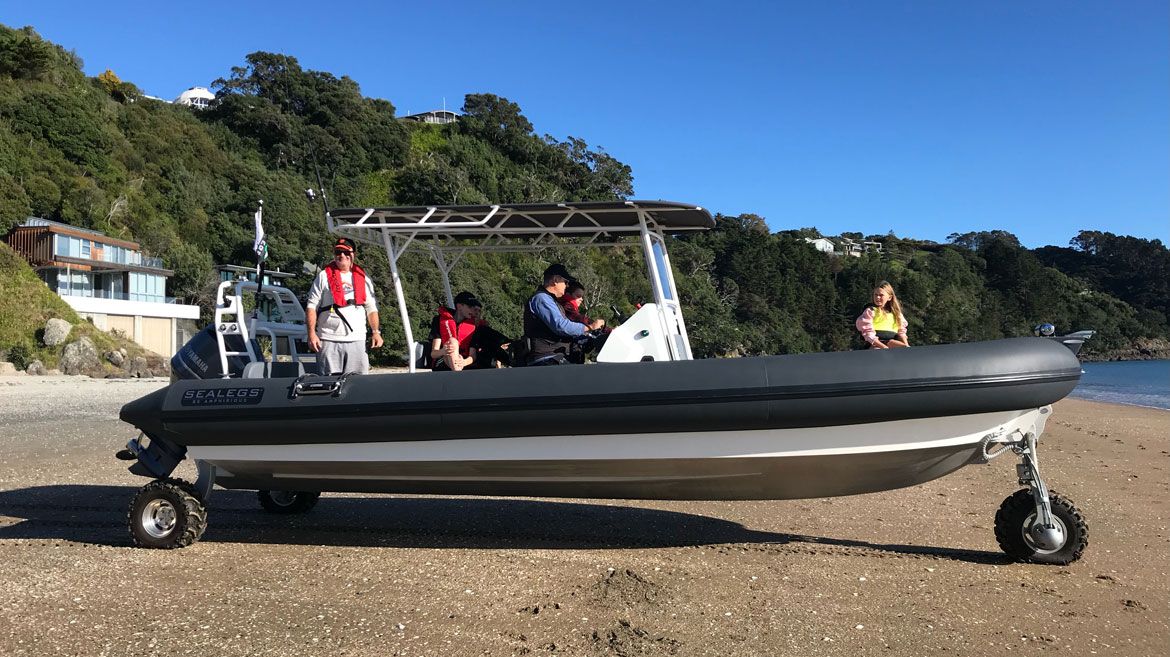
Just as there’s no denying he’s more than earned his retirement a year shy of 60 while his kids are still just about at home, there’s also no denying he leaves an industry experiencing a third straight year of serious headwinds. Anyone hoping the end of the lockdowns that hit much of the East Coast in 2021 would bring sunnier days soon had those hopes disabused by the rise of Omicron – now set for a fresh wave – to which has been added growing inflationary pressures, the war in Ukraine, and a cost of living crisis that’s hampering spending. Even the bottleshops that thrived through the early phases of the pandemic are suffering some pretty dire trading conditions.
“The industry has taken a number of quite heavy counter-punches,” David says. “The industry had grown so much it was probably ready for a bit of a consolidation phase, and that’s probably where we are in now. It’s just a time to pause and absorb.
"The industry just has to get through this period. Things are going to get a little bit tighter. But there are just so many good people, and I have faith in the product. We will come out the other side maybe early next year – I’m always known as an optimist.”
While our chat focuses for the most part on malt, beer and brewing (and comics), it’s noticeable how many of the fond recollections are of the moments adjacent or incidental to the industry: the huge amount of travel and the equally huge amount of fun had along the way.
There’s much talk of sport – both watching high level rugby and cricket with his family and watching his kids play too – including memories of the brewers versus winemakers cricket matches that used to take place annually in Harcourt.
You’d want to bat first, he recalls, as usually too much strong cider had been imbibed by the time the second innings started. Sam Füss, who we wrote about recently as she set sail for Bali, brought a remarkably powerful arm to the pitch, and if you hit the ball into the bushes you had to keep a careful eye out for snakes.
“You had to retire at 30, and one year I retired at 30 not out – it was the highlight of my cricket career,” he says.
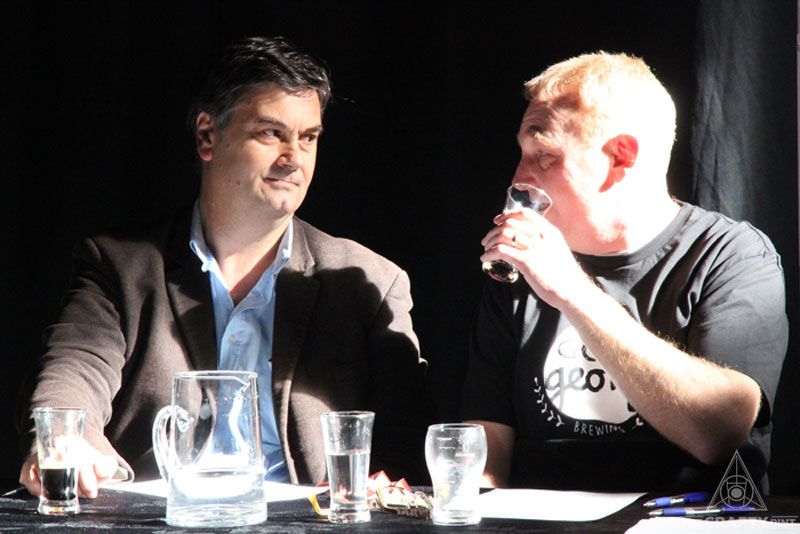
Roll forward a decade and he’s retiring at 30 once again. It’s an innings that has helped elevate the beer and brewing industry on both sides of The Ditch to the remarkable place it is now. Indeed, such has been his impact in Australia, I suspect many Aussies would like to claim him as one of their own – the beer world’s Phar Lap, perhaps, although without the need to stuff him and pop him in a museum (at least for now).
"He's always been reliable," Brad says, after reflecting on David's assistance getting the Craft Beer Industry Association off the ground, a process to which he brought his experiences heading the Brewers Guild in NZ. "If he could help, and it was appropriate, he would try to help. He would go above and beyond to help people."
When Brad became seriously ill following a car accident a few years ago, he says David was "a real rock for me", adding: "He was always someone I would bounce ideas off. He was the first person outside our business I told about what we were doing last year [the sale to Lion/Kirin]. He was someone you could easily pick up the phone to ask if he could help – I did it many times."
David's innings is one that I might only have witnessed for the last dozen years, but for which I’m also eternally grateful: for the avuncular advice in the early years of The Crafty Pint and Good Beer Week, the ongoing support for what we do, and more than anything the many beers, laughs, and occasional high-pitched squeals we’ve shared over the years.
“The industry means a lot to me. It’s done a lot for me,” he says. “I still think about those early days – it felt like the right thing to do.
“You often hear a lot of brewers say all you had to do was get out of bed in the morning and things just happened. But that’s because they were really into it. You don’t create great beer by mistake.”
And you don’t enjoy careers like his by mistake either. Cheers for it all, David!





